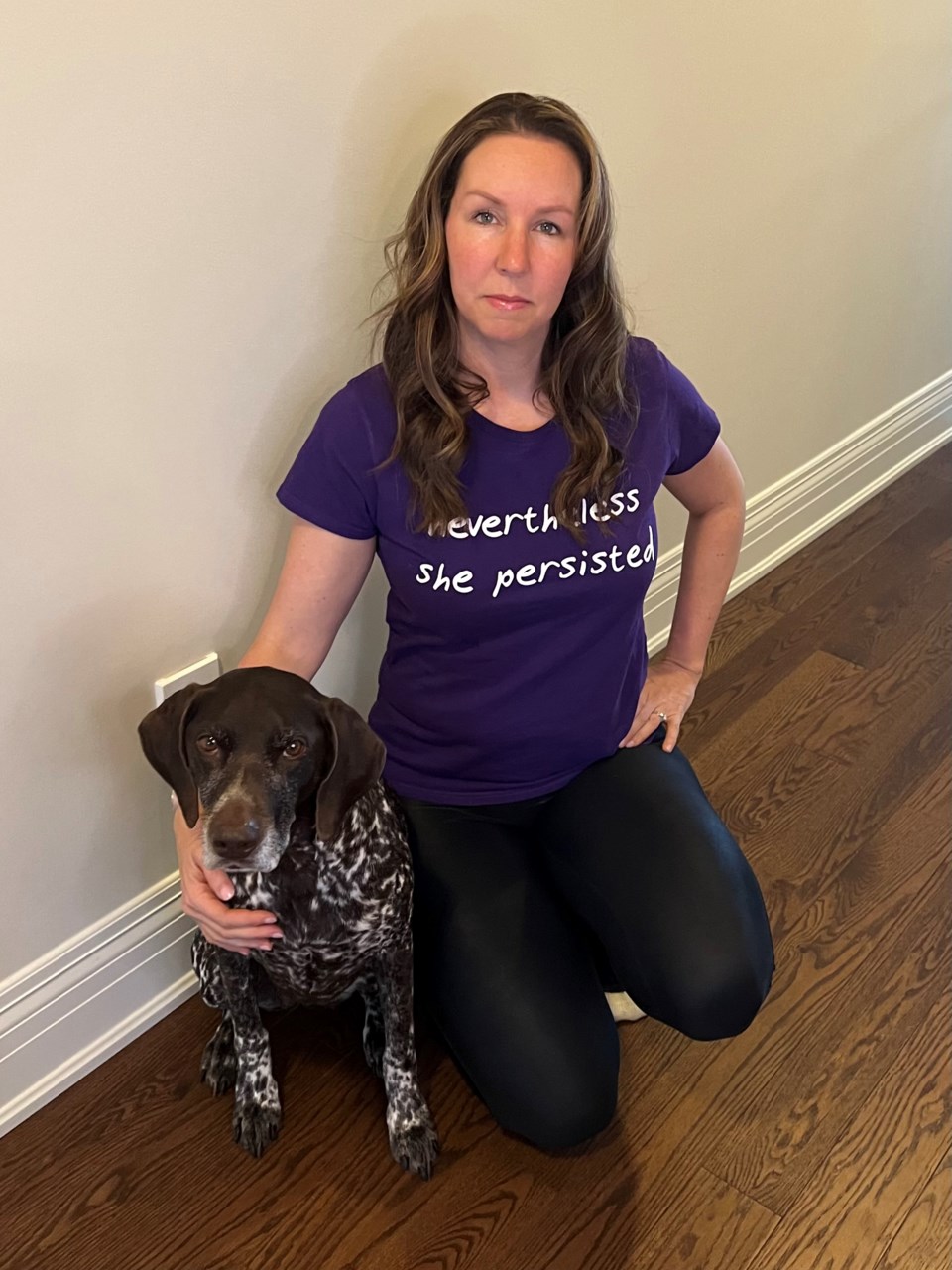Brandy Mullen wants you to know who she is.
Well, it’s her story she really wants to share, but her name is all part of that.
And now she can.
On Tuesday, a Barrie judge agreed to remove the publication ban on her name.
After more than 30 years, Mullen mustered up the courage to go to police to report ongoing sexual abuse as a child.
There was a two-day trial and on Tuesday, Ontario Court Justice Nancy Dawson delivered a 90-minute verdict. Mullen, wearing a T-shirt that reads “Nevertheless she persisted,” was surrounded by friends as she logged into the remote hearing.
Calling Mullen a sincere witness, the judge found there was also no reason to reject the evidence of the accused man. The case, she said, came down to a he-said, she-said scenario. Ultimately, Dawson found that she could not conclude without a reasonable doubt that the accused man did sexually assault Mullen and she found him not guilty.
The judgment came as a complete disappointment to Mullen, but it was no surprise.
But it was the experience of the entire judicial process that she says she found painful and jarring.
“(The accused man) stole my voice as a child and… the Canadian justice system has now taken part of my voice and I’m truly disappointed in the Canadian justice system’s inability to support survivors. It’s just been an absolute horrific experience for me,” she told the court at its conclusion.
Mullen said that the criminal justice system hasn't advanced enough to accommodate the unique circumstances of sexual assault — a gendered crime.
To her, the gaps in the system puts the victim through yet another emotional roller-coaster.
“It’s 2022 and we’re still seeing mostly men get away with sexual abuse against mostly women,” Mullen said.
But she did find some victory.
Publication bans typically accompany cases of sexual assault and Mullen had asked the court, through the Crown attorney, to have the ban lifted. The judge agreed, adding that the man’s name remains protected under the ban.
Although he's now in his 50s, he was charged under the Youth Criminal Justice Act, which protects his identity.
With the ban lifted, Mullen now feels some sense of freedom, not just to share her story but also relieving some of the burden she’s been holding for decades.
“I carried so much shame for so long, feeling like I had done something wrong or it was my fault. And in order for me to release that last bit of shame, I want… every person who's been sexually assaulted to know the shame is not theirs,” said the Springwater Township woman. “The shame belongs to the perpetrator.
“Putting my name out there and saying this happened to me is another way that I can release that shame and put it to its rightful owner," Mullen added.
Toronto lawyer Loretta Merritt, who specializes in civil sexual assault cases, said more people like Mullen want to speak out about their experience. Publication bans are implemented without consultation with the complainants, who don’t have the power to revoke them, she added.
They are also indefinite in duration and anyone who wants them lifted must make the request through the Crown.
For many, having the ban lifted provides them with a sense of empowerment, something many victims feel they have lost to the perpetrators, Merritt said.
“Sexual-abuse survivors want to be empowered, not rendered powerless, to make important decisions regarding their legal rights,” Merritt wrote in a December 2020 paper, adding that approach is a step backward. “No court or Crown attorney — or anyone else for that matter — has a right to tell an abuse survivor what is best for him or her.”



